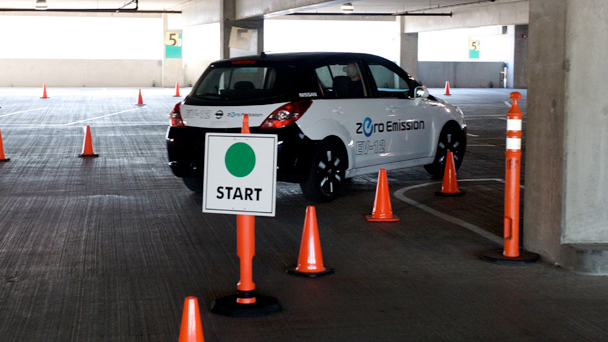Sharing the global stage: Musings on Mumbai
[cross-posted at the TechLearningnblog]
n
After nearly 24 hours here in Mumbai, several things alreadynare quite apparent to me…
n
- The Southern states in the USA – my previous benchmark for hospitality –nhave nothing on the folks that I have encountered so far in India (and I saynthat as a native of the South). The people here have been uniformly gracious,nfriendly, and welcoming.
- The word that best describes this city might be LOTS. As in LOTS of povertyn(it’s staggering, really, to a Westerner such as myself). As in LOTS of trafficn(a bewildering mess of cars, trucks, taxis, buses, auto-rickshaws, scooters,nbicycles, and pedestrians, all darting in and out of extremely small gaps inntraffic). As in LOTS of people and LOTS and LOTS of construction and LOTS ofnenergy. Somehow it all combines together into a positive, tangible buzz. Therenis a feel to this place – a palpable sense that this is a city that is on thenmove.
- Mumbai is a place of startling juxtapositions. At the foot of a gleamingncorporate office building will be a shantytown. Adjacent to an eight-blocknsection of decrepit, decaying apartment buildings (that, of course, are packednwith residents) will be a shiny glass-and-marble shopping mall. Next to anfilthy, tin-roofed store selling tires (that appears to be held up only by thenposters and ads affixed to its rickety wooden walls) will be a new high-endnelectronics store selling HDTVs.
- For all of the possibility that is here, there’s still an enormously longnway to go. Mumbai and other parts of India may be on a tremendous upswing butnthere are hundreds and hundreds of millions of people who are seeing little, ifnany, of the economic growth. That said, it’s a numbers game. Even if only one orntwo hundred million people in a nation of over a billion join the Indian middlenclass, the economic impact on the global economy will be quite substantial.
- Any tech plan that starts like this (as does the American School of Bombay‘s) is probably going to be prettynsuccesful:
nn
nn
nn
nn
n
n
As our world becomes more technologically and globally interconnected,nit’s increasingly imperative that we all understand and plan how to facilitatenstudent and faculty acquisition and mastery of 21st century skills. The 21stncentury isn’t a time in the future; it is now.
n
Have I said anything that hasn’t been said before? Probably not. But I nowncan feel in my gut a sense of what this city is like. In Flightnof the Creative Class, Richard Florida notes that thenbiggest danger facing the USA is not terrorism but rather that talented,ncreative people will stop wanting to come to America. There arenplaces for those people here in Mumbai (and in South Korea, Australia,nSingapore, Ireland…). TomnFriedman is right: we Americans are going to have to get used to sharing thenglobal stage.
n
Scott’s trip to Mumbai:pics at Flickr, movies atnYouTube.
n

